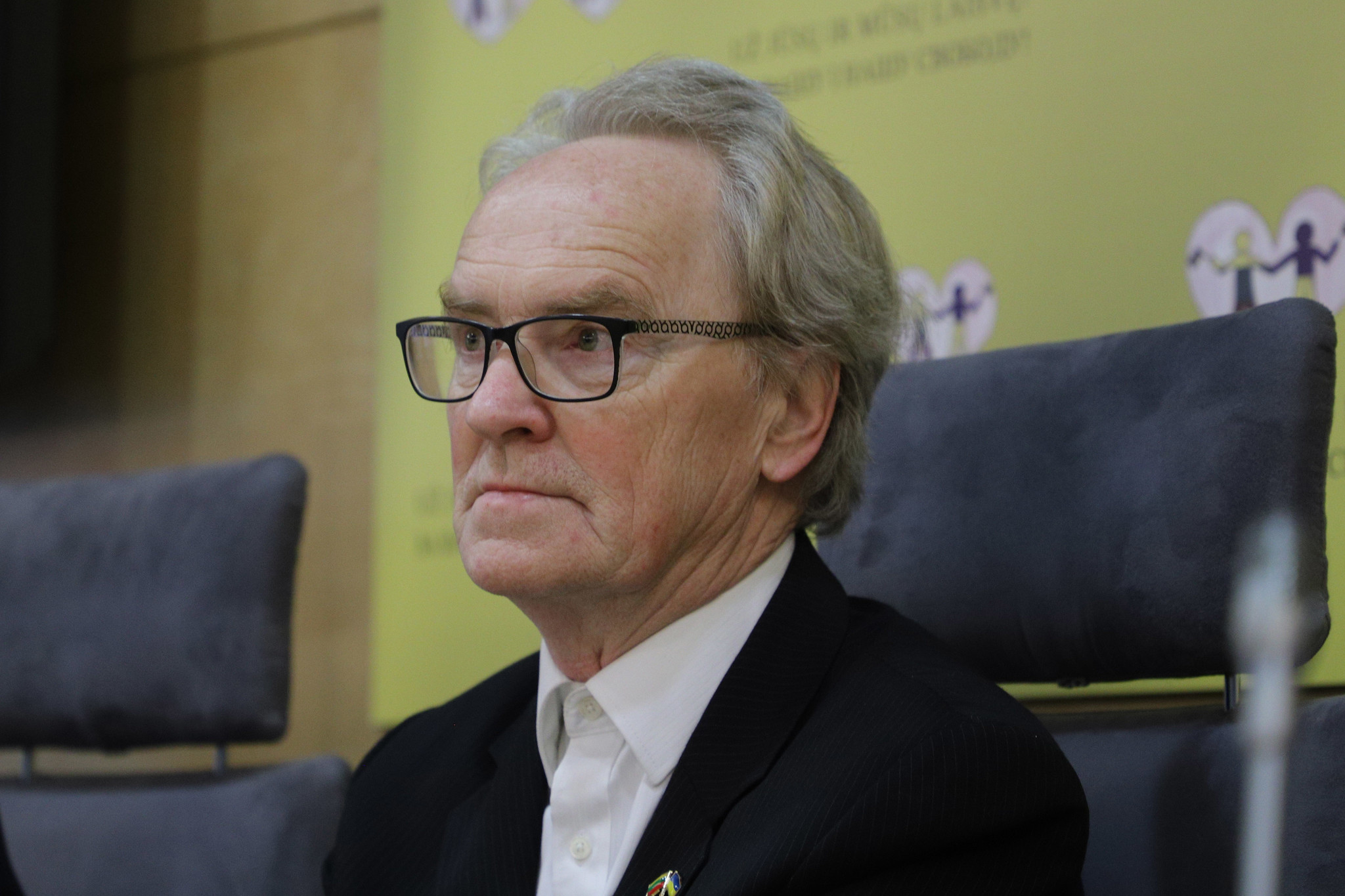Language Award 2022 Goes to the VU Lecturer, Dr Regimantas Tamošaitis
 This year, the Parliamentary Commission for the Promotion of Lithuanian Traditions and Heritage presented the Felicija Bortkevičienė Language Award to Dr Regimantas Tamošaitis, a Vilnius University (VU) lecturer, literary critic, essayist and editor. The Language Award, commemorates Felicija Bortkevičienė (1873-1945), a defender of freedom of speech and a charity organiser. It is presented to individuals, organisations and institutions in Lithuania and abroad for their remarkable Lituanistic activities carried out free of charge.
This year, the Parliamentary Commission for the Promotion of Lithuanian Traditions and Heritage presented the Felicija Bortkevičienė Language Award to Dr Regimantas Tamošaitis, a Vilnius University (VU) lecturer, literary critic, essayist and editor. The Language Award, commemorates Felicija Bortkevičienė (1873-1945), a defender of freedom of speech and a charity organiser. It is presented to individuals, organisations and institutions in Lithuania and abroad for their remarkable Lituanistic activities carried out free of charge.
Doctor of Humanities Regimantas Tamošaitis works at Vilnius University, where he teaches the history of Lithuanian literature and other disciplines in the Department of Lithuanian Literature. Dr Tamošaitis has devoted his entire professional life to Lituanistics, which is defined as studies and research in relation to Lithuanian literature, its dissemination in schools and the creation of Lithuanian literary works.
The award winner is regularly involved in the public cultural life as a columnist, essayist and author of two essays for children. He has published more than 200 reviews of literary books, texts of cultural journalism, and conversations on literature and culture. One particularly important area for the use of the Lithuanian language, in which Dr Tamošaitis works, is editing fiction and texts in the humanities. For two decades, Dr Tamošaitis has been the editor of the Lithuanian Writers' Union's monthly magazine Metai, and has directly contributed to making this main periodical of Lithuanian literature a model for the use of the Lithuanian language.
One of Dr Tamošaitis’ main goals in his pedagogical activity is to provide the younger generation of pupils and students with the ability to write texts – poetry, reviews and articles – of a good linguistic quality. When teaching at Vilnius University, he has always been particularly attentive to encouraging creativity, independent thinking and linguistic expression in his students. Dr Tamošaitis has also done a great deal of work in the field of philological education – or the literary and linguistic education of secondary school students. He is a co-author and editor of the Lithuanian literature schoolbooks for years 11–12, and has written many articles on the methodology of teaching literature, focusing on the issues of literary analysis and interpretation in Lithuanian literature lessons. In these works, Dr Tamošaitis presents methods of text interpretation, as well as explaining and analysing the unique features of literary creativity, and presents the possibilities resulting from the understanding and dissemination of literature in culture.
The lecturer also participates extensively in activities without remuneration with various secondary schools throughout Lithuania, by giving lectures, running workshops and otherwise teaching text interpretation – explaining the methods that allow one to grasp the deep layers of a work’s meaning and to grasp the special significance of the words. For almost three decades, Dr Tamošaitis has been participating as a member of the jury for the Young Philologists Competition in the sections of literary science and critique and poetry, and in recent years he has also been the jury chairman.
Dr Tamošaitis’ work has special significance, because of the development of the cultural and philosophical context of Lituanistics. His unique area of research and cultural interest is the links between Lithuanian literature and culture, as well as the religious and philosophical traditions of the East, especially Vedic literature. He is interested in the Indo-European roots of the Baltic and Sanskrit languages, and in the worldview that emerges from them. In the context of the development of culture and the use of the Lithuanian language, one of Dr Tamošaitis’ particularly significant works is a Lithuanian translation of the Bhagavad Gita, a part of the monument of world literature, the epic Mahabharata, which was prepared together with the poet Alfonsas Bukontas (1999).
The Language Award is traditionally presented at the Language Night event held at the Palace of the Grand Dukes of Lithuania in early December. This year, as in previous years, the other nominees will be honoured as well: Rita Urnėžiūtė, Editor-in-Chief of the Science and Encyclopaedia Publishing Centre’s magazine Gimtoji Kalba and Secretary of the Board of the Lithuanian Language Society; Professor Irena Smetonienė from Vilnius University; Ramutė Šimukauskaitė, Editor of the Prienai District and Birštonas Region newspaper Gyvenimas; and Stasys Tumėnas, Member of Parliament.